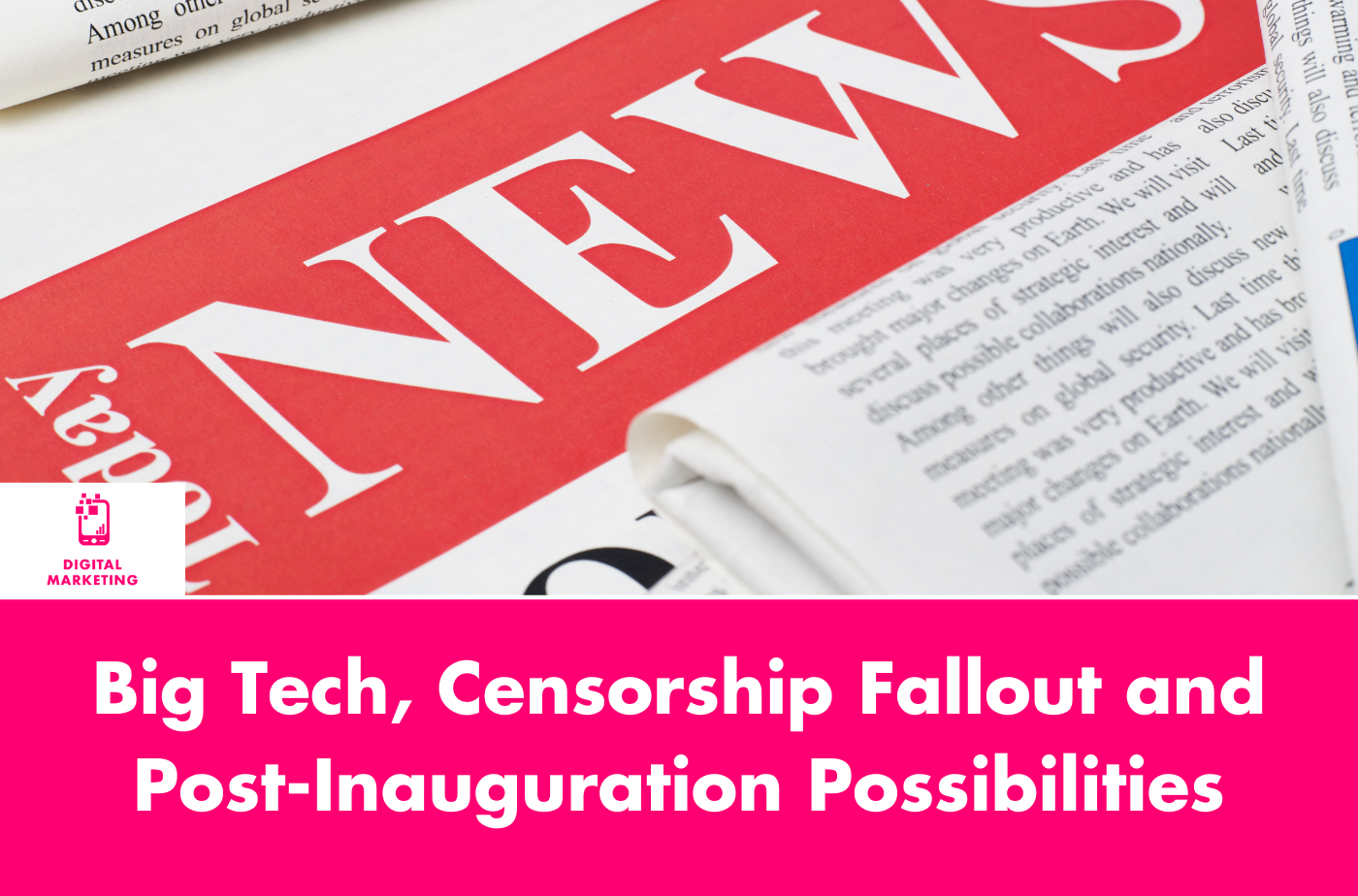After the horrific incidents at the capitol last week, many big tech social media platforms have recently redefined or strengthened their content policies to keep people from inciting violence and causing offline harm. As news outlets have been hyper-focused on social media outlets like Facebook and Twitter banning President Trump, many people have brought up the legality of big tech censorship as well as its dangerous potential consequences. Since they are both private companies, the censorship may not be a legal issue (for now) but this does not mean the platforms will not suffer from their actions.
Trump, love or hate him, created massive engagement on the platforms. Facebook insiders recently admitted to media outlet Politico that conservative posts tend to get the most engagement (see article). This engagement translated to substantial advertising revenue and investors know that. As cries emerge about boycotting the platforms from the conservative right, while flames are being fanned by the news surrounding the banning of the social media app Parler, Facebook’s stock (FB) has declined about 8% over the last 5 days. This translates to a loss of $33.6 billion in market cap. At the same time, Twitter’s valuation has dropped over $5 billion dollars (over 12%) since announcing the ban. With his 88 million followers and controversial posts, one could say the President has had great impact on the stock (TWTR) which has almost doubled since last March (was trading at $23 dollars per share vs around $48 now).
Another interesting development is many people in the media business are talking about the President’s next chapter. Many have speculated that with all of the recent censorship, be it bans or otherwise, as well as his constant attack on “fake news” media outlets, a perfect storyline has been written for creating a new digital media network catering to the 74 million Americans who voted for him. Through campaigning he already has access to his base, many of which would probably pay a monthly fee for this access of content. One could ask would brands be excited to advertise on this network? Quick answer is sure, some would. Anytime you have that many like minded people together, it’s almost impossible for a brand to not at least consider the opportunity. Like anything, you must know and understand your audience and how your brand fits into their lives.
With everything going on, it will be interesting to see how long or firm the lifetime bans will last. One could see the mounting pressure of a falling stock price forcing the CEOs of these social media platforms to reevaluate their decisions. Especially if they are presented with competition in the form of a new digital media network by President Trump post-inauguration of President Elect Biden. This will be especially difficult times for the companies’ leaders as employees have already voiced their concerns about this content on their platforms. Personally, I wouldn’t want to be in this predicament.
With all things being considered, and if you were the CEO of Facebook or Twitter, what would you do?
BOSTON, MARS



